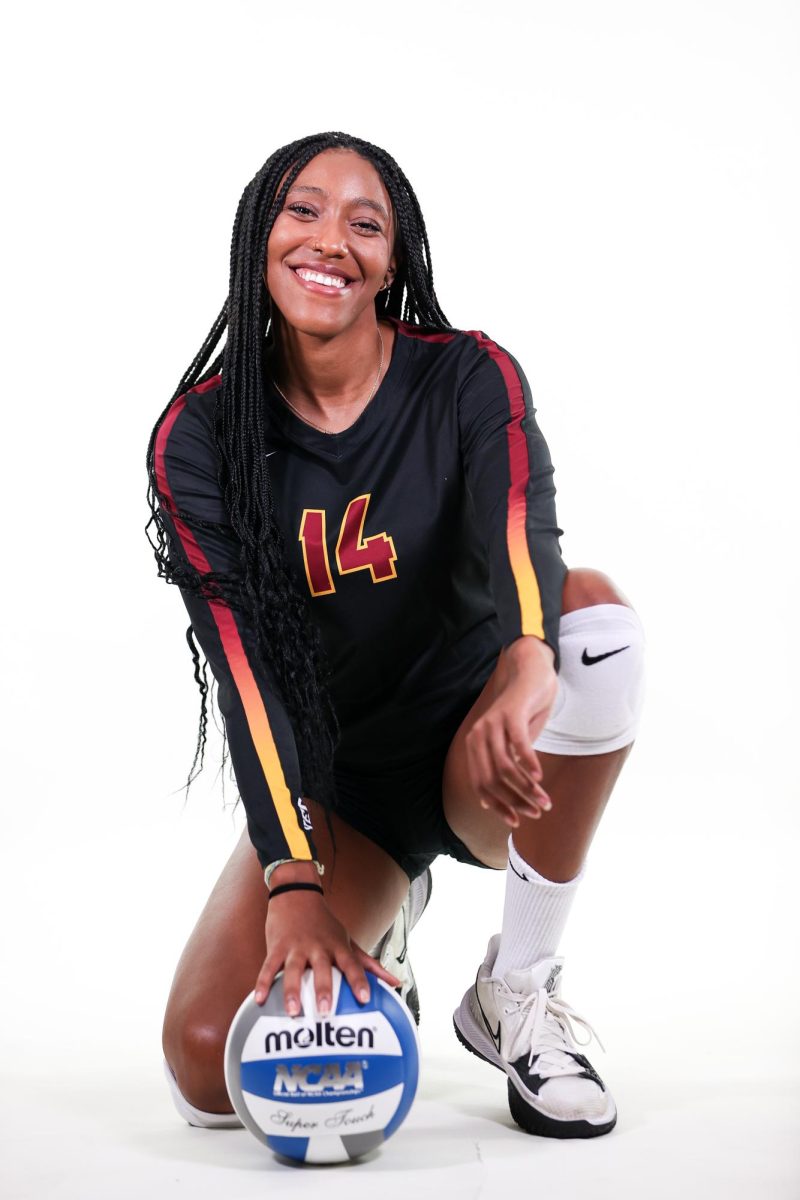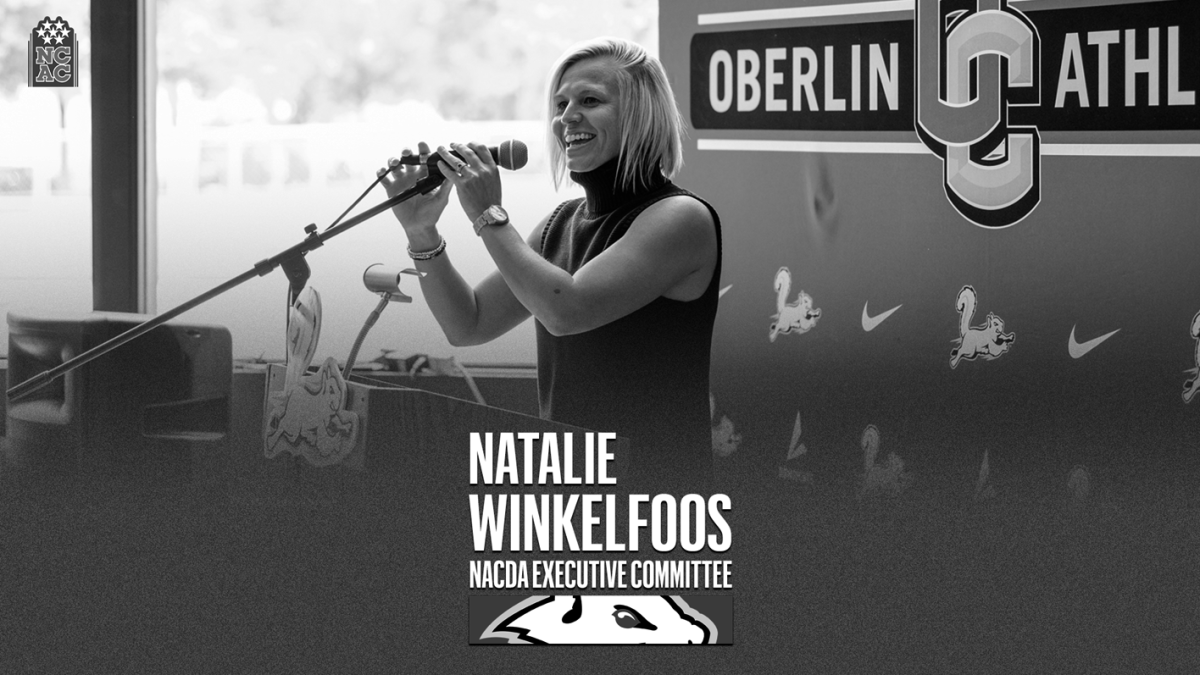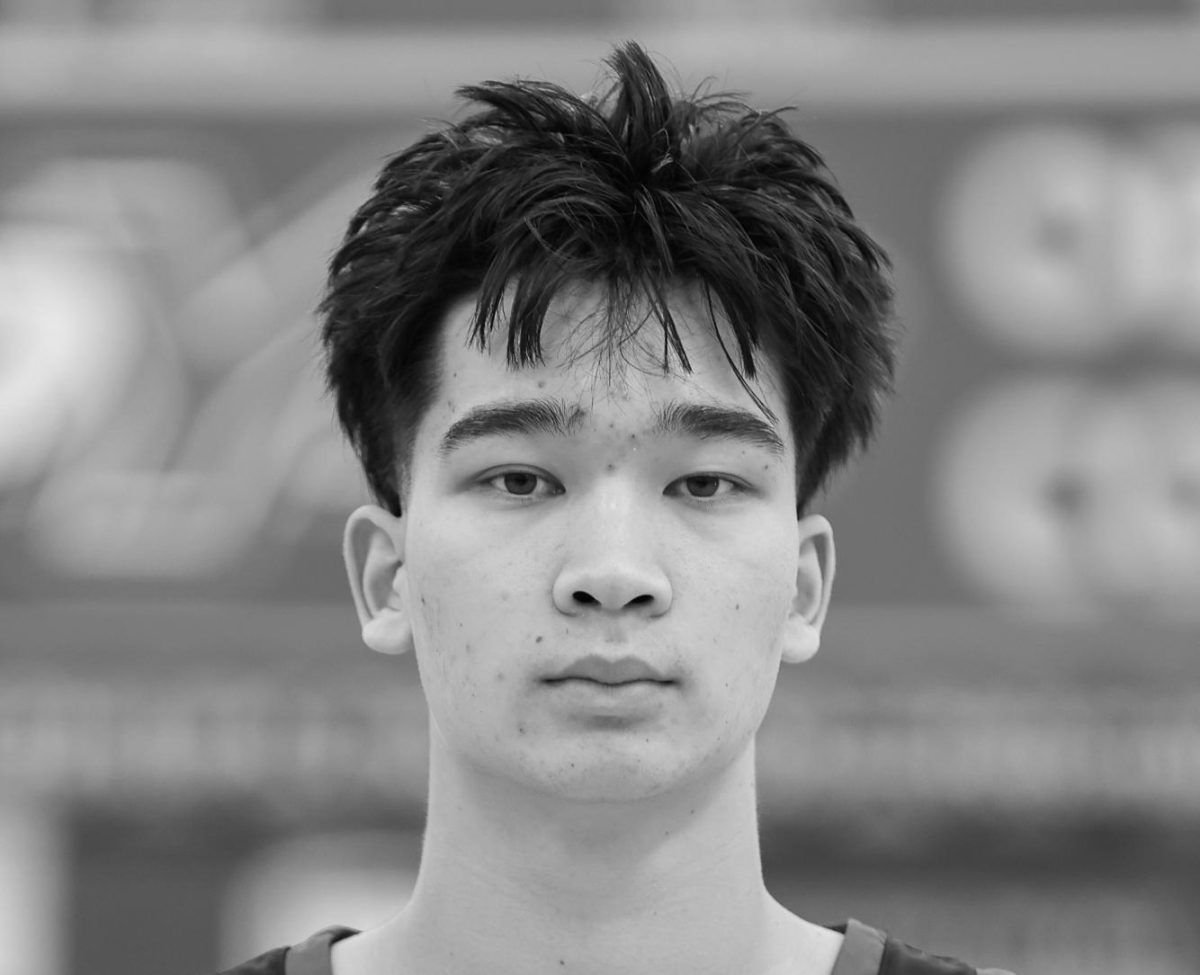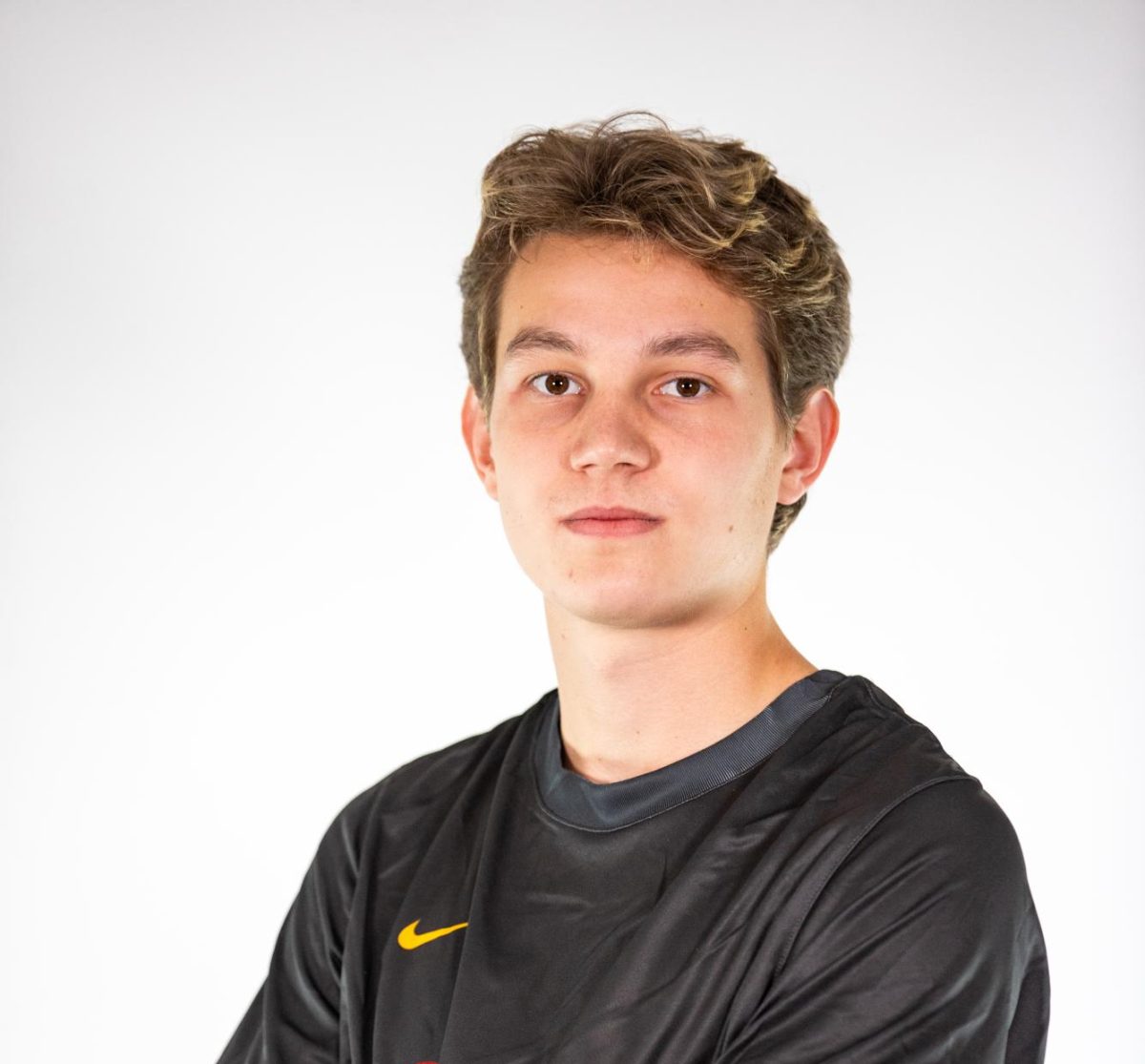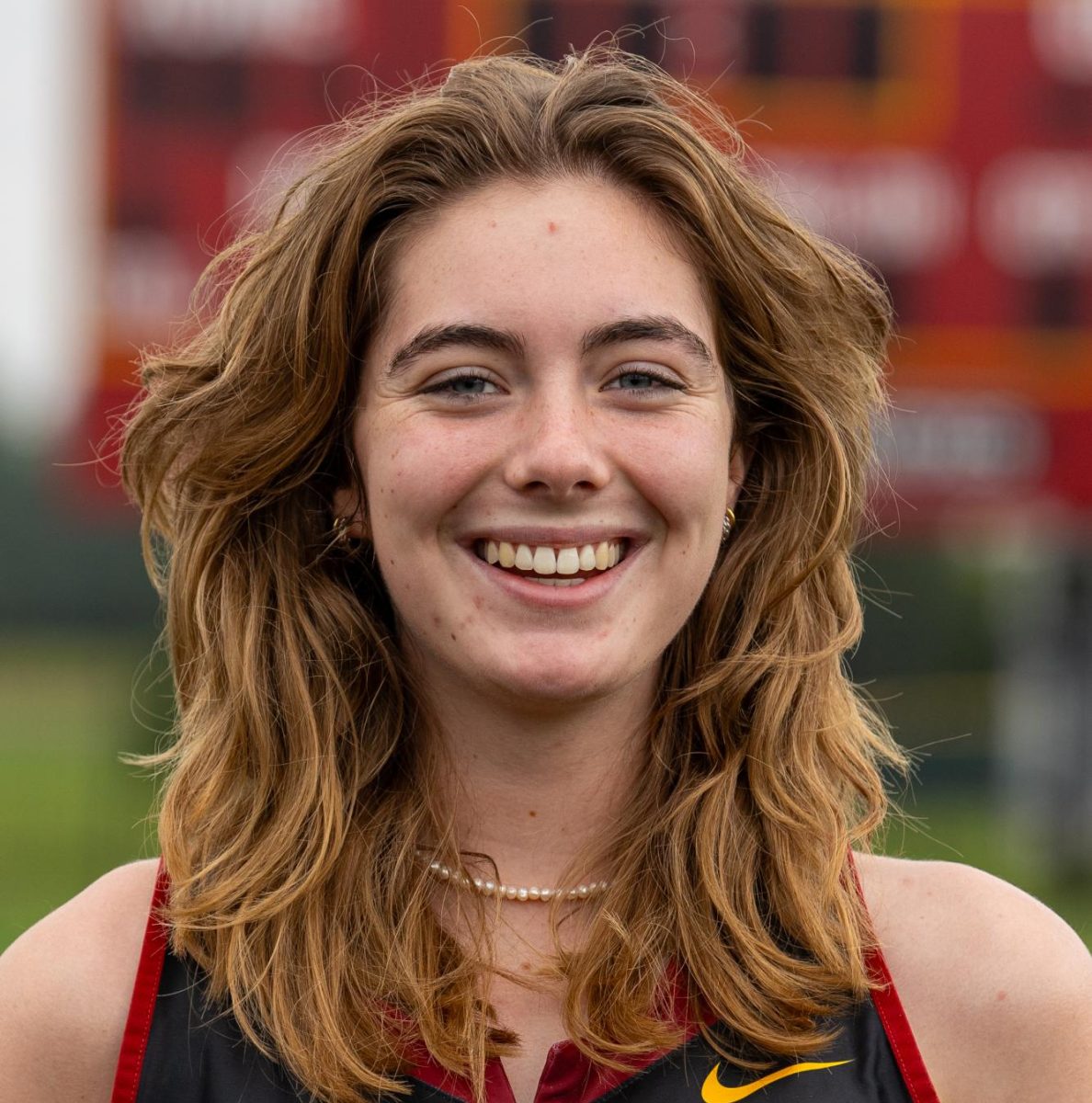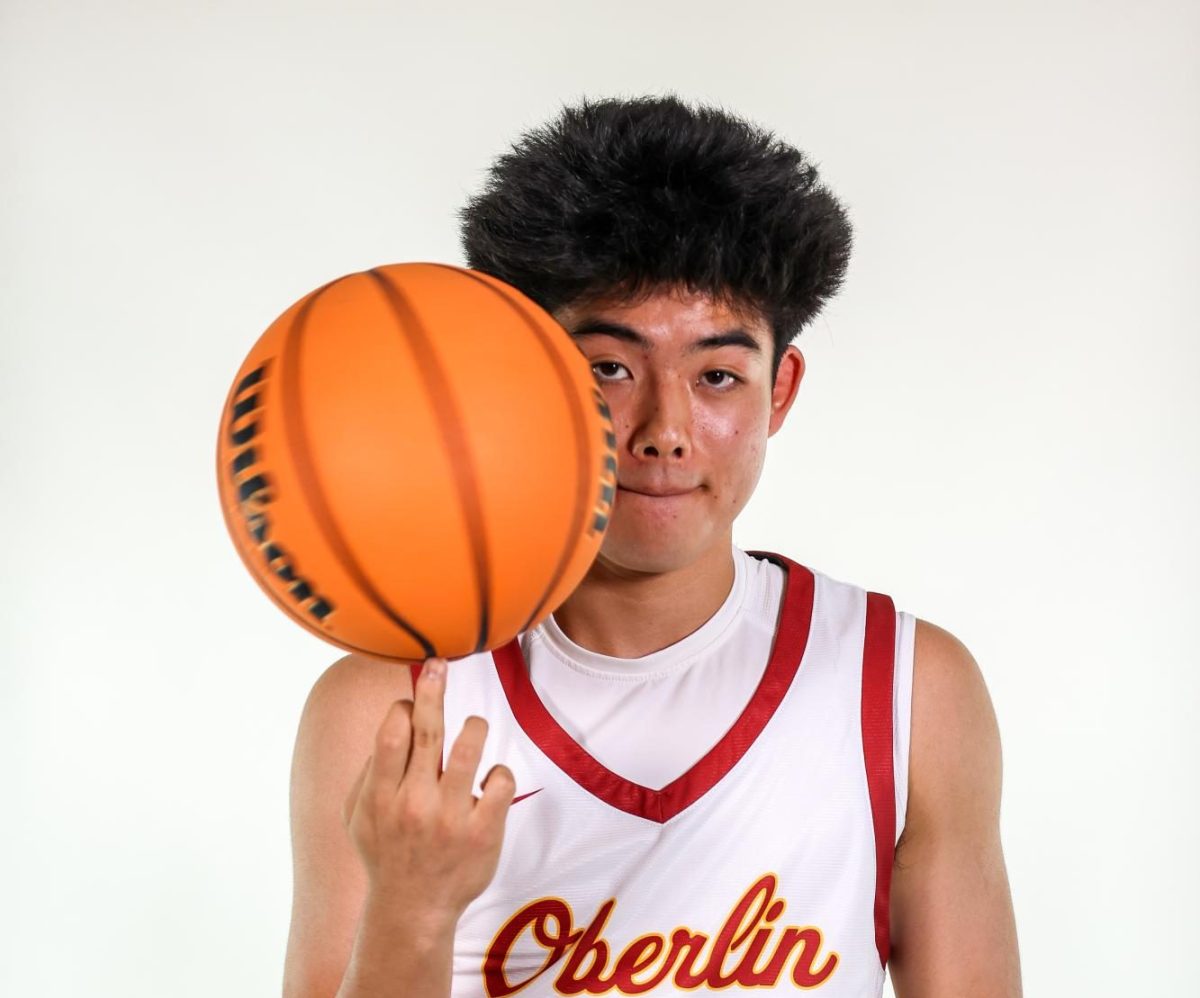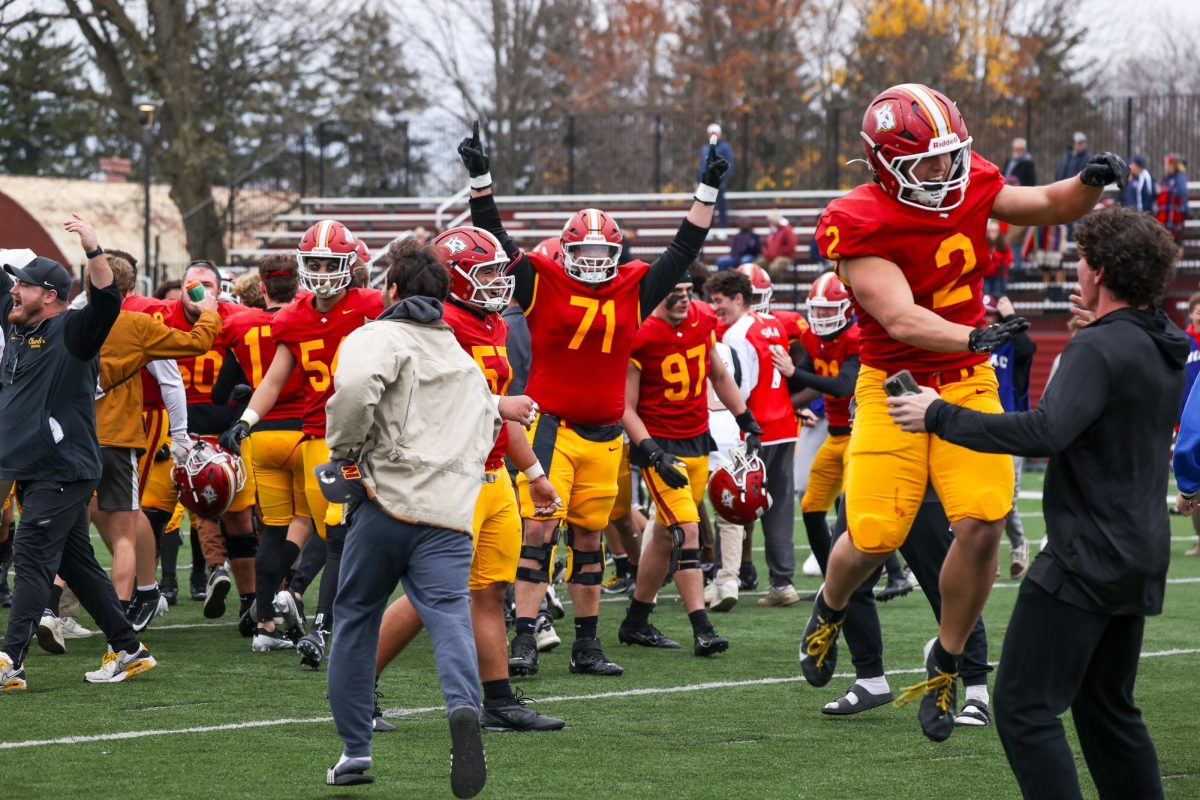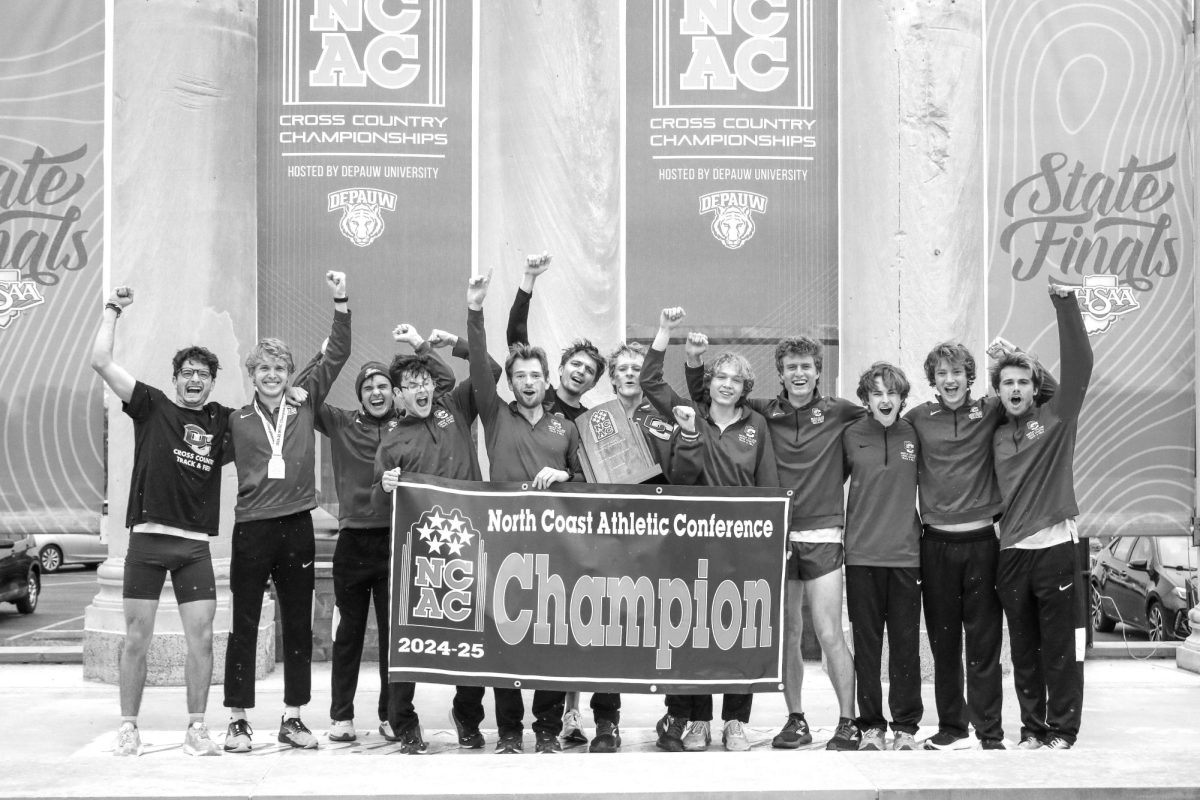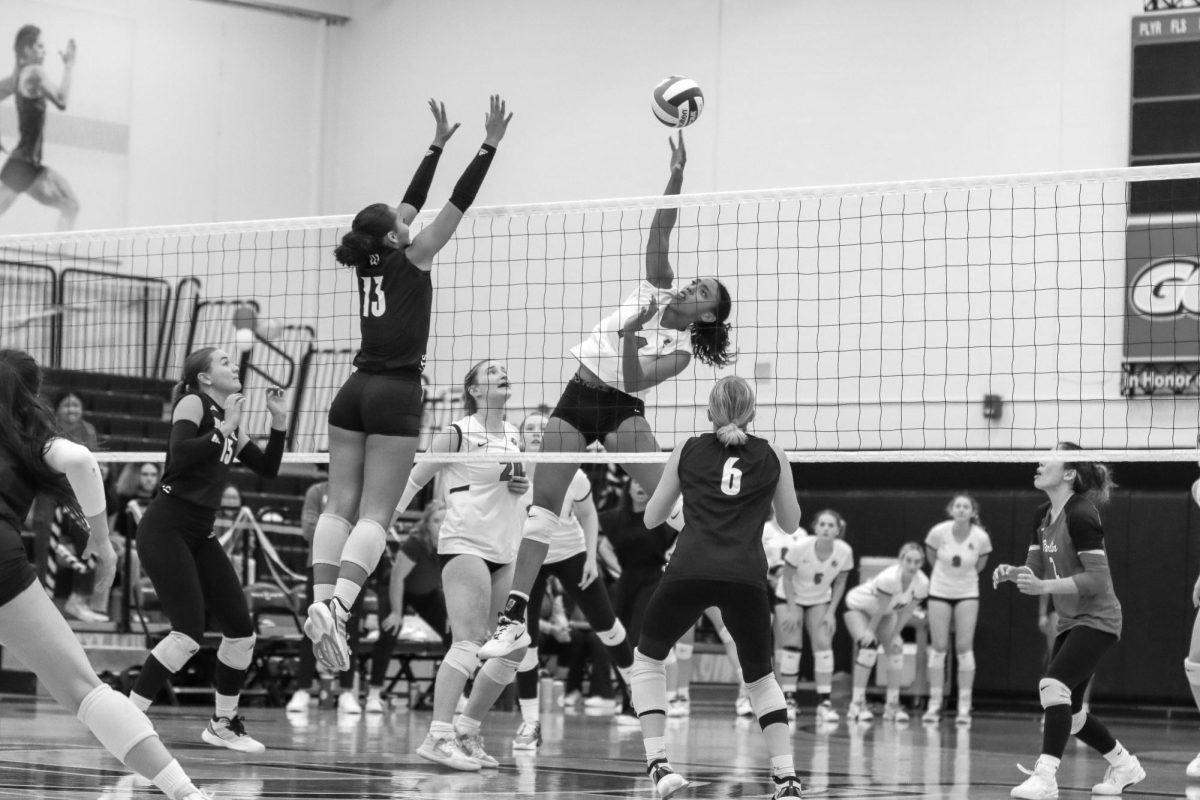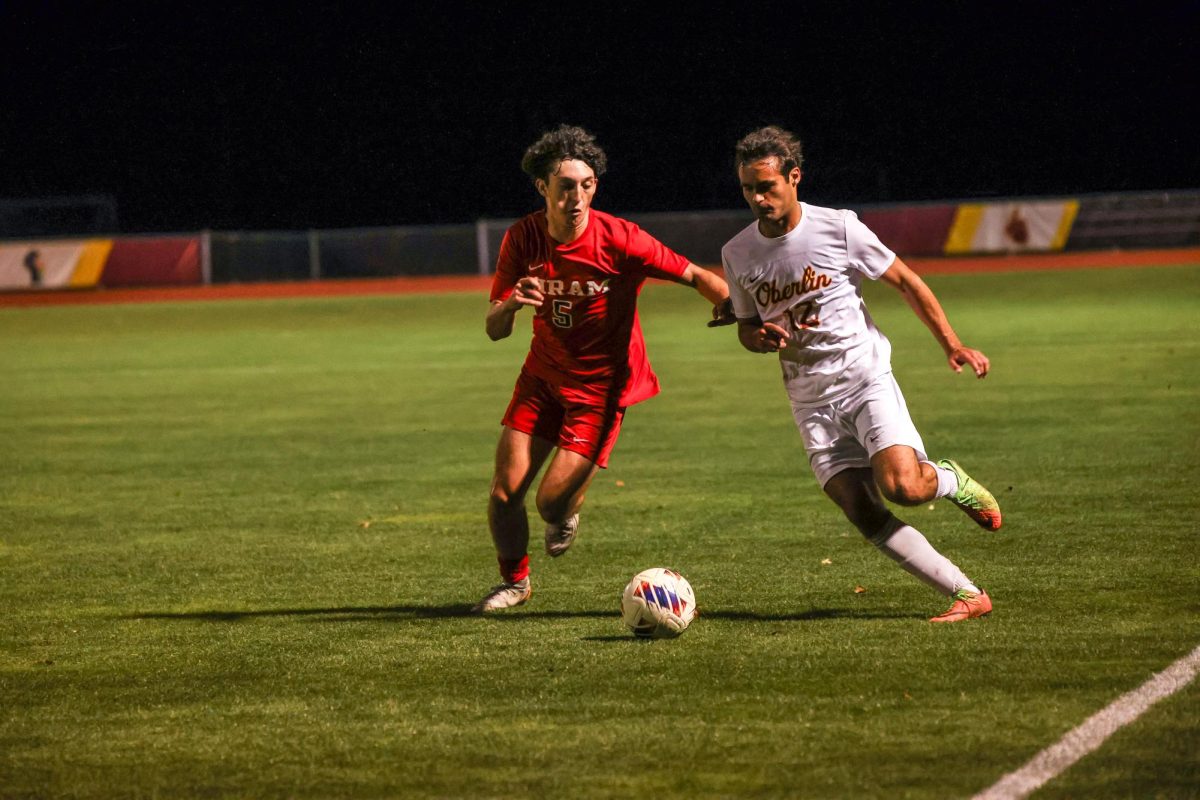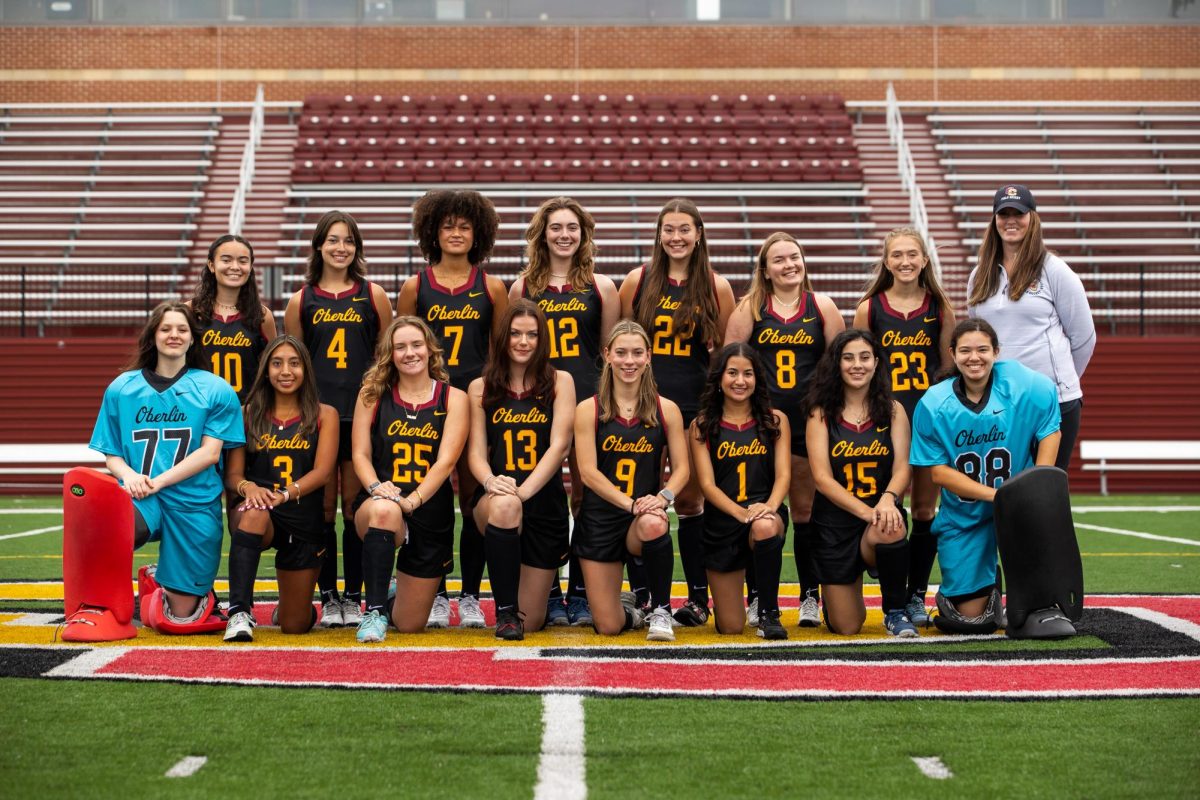Cami Sweet is a third-year majoring in Sociology and Law and Society with a minor in Africana Studies. The volleyball team’s star middle blocker currently leads the NCAC with 103 kills through the team’s first twelve matches. But for Sweet, it isn’t all about volleyball. It is about forging relationships with her teammates, fighting for change, and enjoying her time along the way.
Growing up in San Diego, Sweet’s first love was basketball. She did not start playing volleyball until sixth grade, when she joined a recreational team, and didn’t join her first club team for two more years.
“I started club [volleyball] in eighth grade,” Sweet said. “I was not good. I was actually terrible. I was so bad in my first tournament my coach told the setter not to set me anymore. They just put me up there to block. I was just a big girl on the team.”
The same coach, Coach Liz, became one of Sweet’s biggest mentors.
“She was willing to work with me and saw the potential in me,” Sweet said. “I would go in for individuals and privates pretty much every weekend. I would stay after, and we would drill it over and over and over. I went to every workout she held, getting me to hit how she wanted me to hit and getting me to block how she wanted me to. I was super dedicated that year. I always thank her for seeing the potential in me and not just seeing me as another ‘tall girl.’”
Now, over six years later, rather than avoiding setting her, the team does everything they can to get her the ball for what she calls the best feeling in volleyball: a hard overpass. It’s tied for first with a stuff block.
The women’s volleyball team has jumped to a 10–3 start this year. Sweet partially credits their success to dance parties. If you do not see the team on time for warmups at home games, do not worry. They are getting down to Sweet’s favorite artist, Childish Gambino, or Beyonce’s “Energy.”
“Before games, we’re in the locker room dancing,” Sweet said. “We are literally having a dance party. No skills work, no game talk, nothing. We turn on some good music and dance there.”
The tradition started this year in their first tournament, when Sweet shared AirPods with fourth-year setter Taylor Gwynne.
“We were dancing to music because we wanted to get warm,” Sweet said. “We didn’t want to do another warmup. We killed it in that game. After that, we thought, ‘Let’s just have a dance party before every game.’ That’s why we went on that nine-game winning streak.”
Sweet also mentioned that the team’s only three losses this season came when they did not have a pregame dance party.
When Sweet joined the team as a first-year, she was comforted by the racial diversity of the team and a team culture that celebrates diversity. Today, nearly half of the team are women of color.
“When I came in, the team was almost 50 percent Black, which is almost unheard of for volleyball; that never happens,” Sweet said. “It was really fun to come into a team where I could share my culture and [be around] people who can share my experiences, and we can talk about those things.”
The success and atmosphere the team created this season can, in part, be accredited to hardships the program faced last year. Last year, in a non-conference away game, the opposing team’s student section yelled racial slurs at one of Sweet’s teammates.
“It was a really hard thing for all of us to go through,” Sweet said. “But it made us stronger, coming together and being able to stand up against something like that and supporting each other through that. This year, we were asked to play them again, and the whole team stood together and said, no, we’re not going to give them the privilege of playing us because we were wronged by the culture of that school. After that talk, we had one of the best practices we’ve had all season. It showed the unity and love that we have within the team. People know they are going to have to fight for things they maybe never had to think about before, but that mindset really brings us together.”
The team’s connection stems deeper than volleyball. Their relationship is rooted in perseverance and being there for one another.
“We sent a message to any other team that plays us: we’re not going to take you saying anything to any of our teammates,” Sweet said. “Any other team in our conference and all across DIII, you have the power to make these decisions. We have a responsibility to take care of our POC teammates and to make sure that we all come together in support of one another.”


